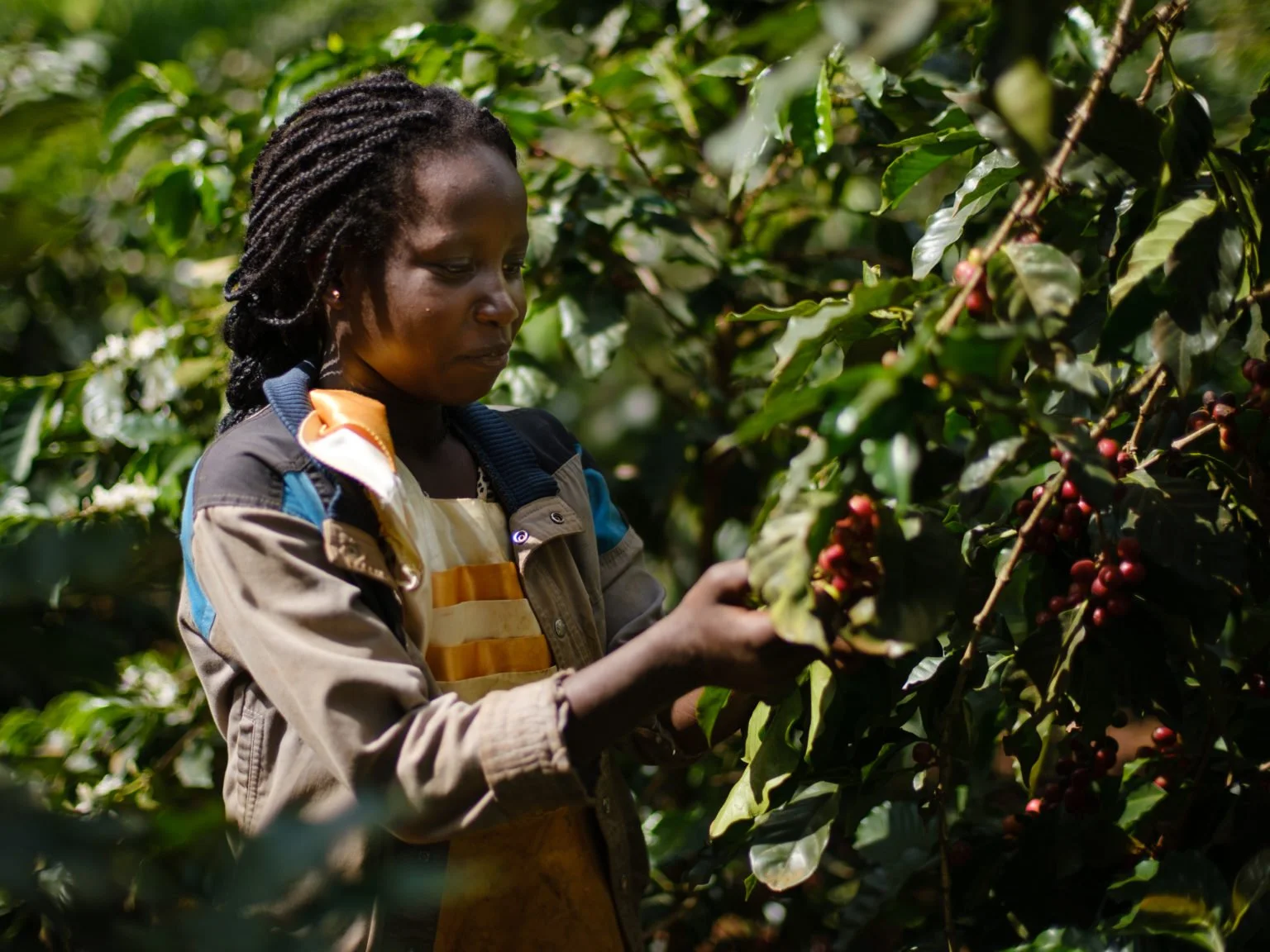
Kenya
Natural
Women’s Cooperative
From Jamii Coffee:
“We are not ignorant of the cultural practices the exist in our communities that deny women the opportunity to engage in viable economic activities. In many instances women provide the labor and the husbands get paid. This needs to change to build more stronger communities” – Charles Mutwiri, Kenyan Coffee Farmer
This words from our farmer partner Charles Mutwiri couldn’t be truer. They align with our mission to bring radical transparency in the way Kenyan coffee is sourced and traded to improve lives in rural communities.
Jamii Coffee is excited to partner with Thuura Women in bringing this coffee into the US. The 2022 coffee is their first harvest ever and their first coffee ever to be sold in the U.S. In 2017, Charles Mutwiri initiated Thuura Coffee Growers and helped distribute 30,000 coffee seedlings to 200 farmers with each farmer receiving between 150 – 175 coffee seedlings. As a seasoned coffee farmer from Meru, Charles wanted to share his coffee experience to give training and moral support to farmers of Thuura village. Most of the farmers had had abandoned coffee farming.
From the group of 200 members, 70 women were registered as Thuura Women Organic Coffee Self Help Association. This guaranteed economic transparency. Income of coffee produced by the women goes directly to the women. Giving them opportunity to directly earn income, become owners of capital, and make independent decisions on how to invest this capital. Most of the women were widows, divorced or have been abandoned by their spouses.
Soil to Cup Approach: How Jamii sources coffee:
Quality is achievable, changing lives requires dedication. Redistributing risk along the supply chain. What many would consider high-risk with many unknowns and lots of opportunities for things to go wrong is where we see empowerment and opportunity to share our knowledge. We partner, train, and support the production of specialty quality coffee. We enter preharvest contracts with the farmers and commit to buy coffee cherry price using local Kenyan currency. We want to meet the farmer where they are rather than ensnare them with international trade web and jargons.
We are in the business of humanity, weather, and environment. We are cognizant to the fact that coffee quality is dependent on Terroir - the complete natural environment in which a particular coffee is produced, including factors such as the soil, topography, climate, and crop management. The only point we can influence coffee quality is at the farm level and Kenyan farmers are good at this. Any action after the farm level is quality maintenance and management. With boots-on-the ground all year round working with farmers, we provide expertise in production management ensuring that the quality is maintained along the coffee value chain. This requires trust-based relationships that turn into friendships that create radical transparency from farm to cup and vice versa.
Opportunity not Charity. Preharvest contracts are direct price negotiations with farmers or their management. After doing a cost of production analysis with farmers we multiply the cost by 150% to determine the price starting point. This ensures that the farmer is profitable at the farm level. Our goal is educating farmers on business fundamentals with the aim of turning them into businesspeople who engage in coffee farming. This supports the farmers to make informed decisions and determine whether coffee farming is a profitable venture and helps improve economic stability in coffee communities.
Thuura Women’s Cooperative Natural
Cultivar - SL 28
Process - Natural, Sun-Dried
Altitude - 1500 meters above sea level
Score - 88.5
Rob’s Sinar Moisture Reading: 9.9%
Water Displacement Density Reading: 1,210 g/L
Jamii Coffee is cohort of Kenyans working to create an indigenous Kenyan coffee success story by eliminating the disconnect that makes Kenyan coffee complex and opaque. It was founded by Francis Kungu and specializes with Kenyan coffee.
Francis was born and raised in a small rural community in Kenya and he saw an opportunity to improve lives in Kenyan coffee communities by demystifying the Kenyan coffee supply chain. Over the years Francis and his team in Kenya have developed a Soil to Cup approach. This approach focuses on restoring humanity on the supply value chain by pairing boots-on-the-ground with increased transparency to produce high-quality coffee, which in turn guarantees living wage prices for coffee growing families creating economic stability, broad social impact and promotes sustainable environmental practices.
Learn more at www.jamiicoffee.com














